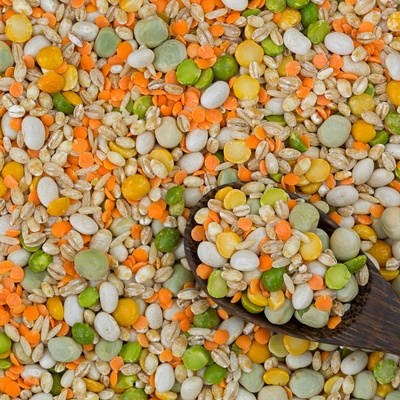Articles / Healthy Living
Feb 9, 2025
2.1K Views
The Role of Nutrition in Heart Attack and Stroke Recovery
By Food Matters Institute
Recovering from a heart attack or stroke is a journey that requires a very considered approach, with nutrition playing a pivotal role. The foods you eat not only influence your recovery process but also help reduce the risk of future cardiovascular events. By prioritizing a nutrient-rich, heart-supportive diet, you can support healing, restore vitality, and take proactive steps toward long-term health.
Why Nutrition Matters in Recovery
After a heart attack or stroke, the body undergoes significant stress as it works to heal damaged tissues, regulate blood flow, and stabilize overall health. Proper nutrition helps:
-
Reduce inflammation, which can exacerbate damage to blood vessels and tissues.
-
Support cardiovascular repair by providing essential nutrients that aid in cell regeneration and heart function.
-
Promote optimal blood flow and prevent further clot formation through improved blood vessel health.
-
Enhance energy levels and overall well-being, enabling a more active recovery.
Incorporating the right foods into your recovery plan can make a profound difference in your physical and emotional resilience.
Key Nutrients for Cardiovascular Recovery
-
Omega-3 Fatty Acids
Omega-3s are anti-inflammatory fats that improve heart health and reduce the risk of recurrent cardiovascular events.
Benefits: Lower triglycerides, support heart rhythm, and improve blood vessel flexibility.
Top Sources: Fatty fish (salmon, mackerel), walnuts, flaxseeds, and chia seeds. -
Magnesium
Magnesium helps regulate heart rhythm and relaxes blood vessels, promoting healthy circulation.
Benefits: Reduces blood pressure and supports nerve and muscle function.
Top Sources: Leafy greens, almonds, avocados, and dark chocolate (70% cacao or higher). -
Potassium
This essential mineral helps maintain fluid balance and lower blood pressure by counteracting sodium’s effects.
Benefits: Reduces strain on the cardiovascular system.
Top Sources: Bananas, sweet potatoes, spinach, and white beans. -
Fiber
Dietary fiber helps reduce cholesterol levels and stabilize blood sugar, both critical for cardiovascular health.
Benefits: Supports digestion and reduces inflammation.
Top Sources: Oats, legumes, berries, and whole grains. -
Antioxidants (Vitamins C and E)
Antioxidants combat oxidative stress, which can damage blood vessels and exacerbate recovery challenges.
Benefits: Promote healing and protect against further cardiovascular damage.
Top Sources: Citrus fruits, bell peppers, nuts, seeds, and green tea.
Foods to Embrace During Recovery
-
Colorful Vegetables and Fruits: Packed with antioxidants, vitamins, and minerals, these foods reduce inflammation and promote tissue repair.
-
Healthy Fats: Include sources like olive oil, nuts, seeds, and fatty fish to support heart and brain health.
-
Whole Grains: Rich in fiber, whole grains help manage cholesterol and blood sugar levels.
-
Lean Proteins: Prioritize plant-based proteins, fish, and organic poultry to support muscle and tissue repair.
Foods to Minimize or Avoid
-
Processed Foods: High in trans fats, sodium, and added sugars, these can increase inflammation and hinder recovery.
-
Refined Carbohydrates: White bread, pastries, and sugary cereals can spike blood sugar levels and contribute to poor heart health.
-
Excessive Salt: High sodium intake can raise blood pressure, straining your heart and blood vessels.
Beyond Nutrition: Holistic Lifestyle Support
While nutrition is foundational, pairing it with healthy lifestyle habits can amplify recovery:
-
Stay Hydrated: Proper hydration supports circulation and reduces the workload on your heart.
-
Move Gently: Regular, moderate physical activity, as advised by your doctor, enhances cardiovascular strength.
-
Manage Stress: Practice mindfulness, yoga, or meditation to keep cortisol levels in check.
-
Quit Smoking and Limit Alcohol: These habits can significantly impact your recovery and long-term heart health.
Nutrition is a powerful tool for recovery after a heart attack or stroke, offering both immediate and long-term benefits. By nourishing your body with heart-supportive foods and adopting holistic lifestyle practices, you can accelerate healing, prevent future cardiovascular events, and reclaim a vibrant, active life. Remember, every meal is an opportunity to rebuild and renew.












